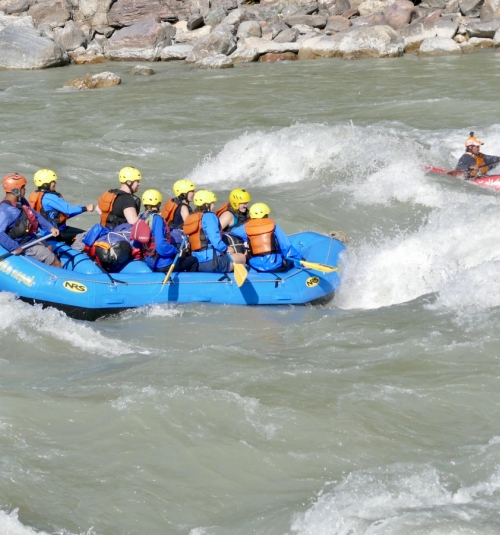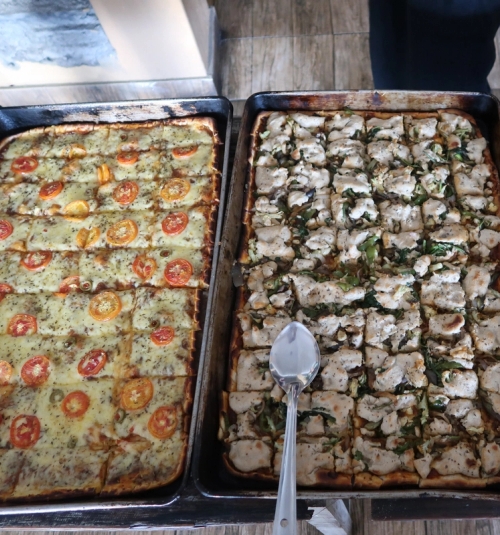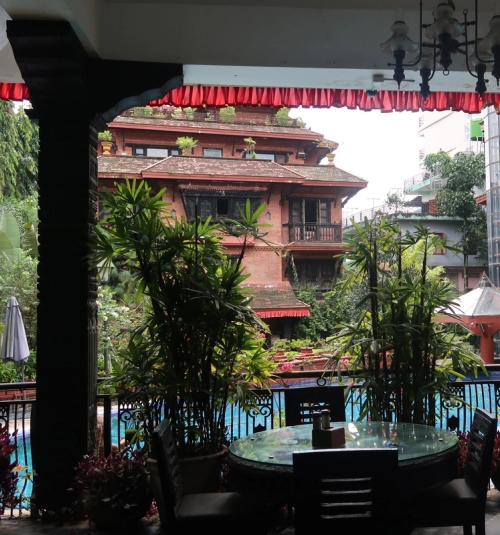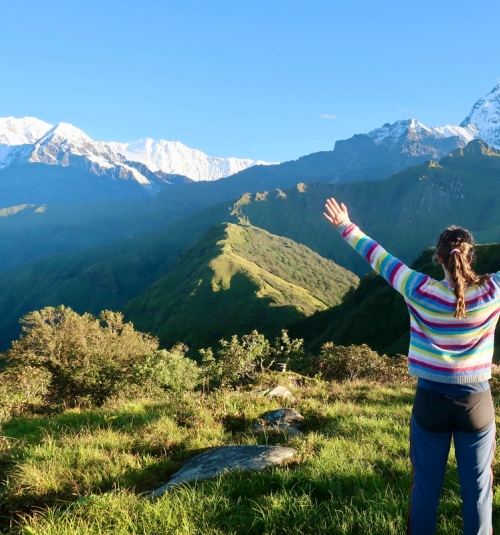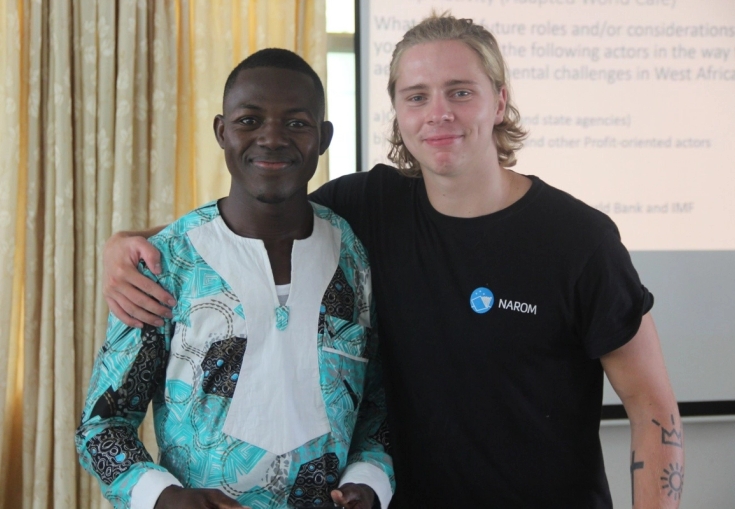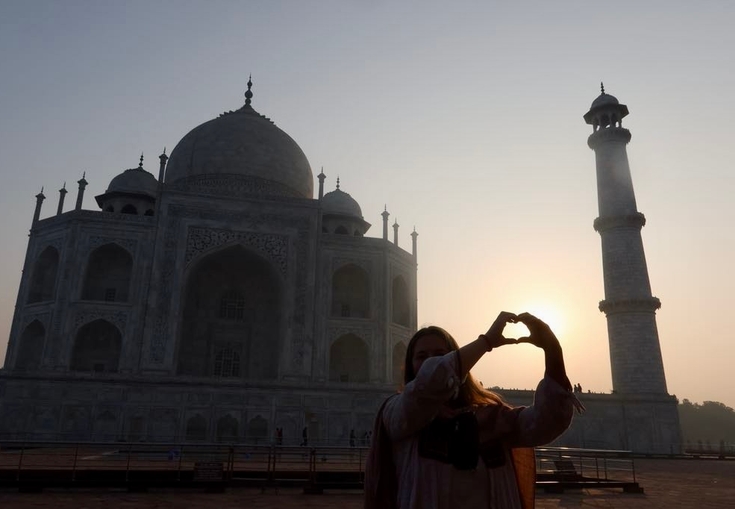
A semester of learning and adventure: Peace and Conflict Studies in Nepal and beyond
In this blog post, I will provide an overview of the study structure for Peace and Conflict Studies in Nepal, along with examples of potential opportunities after completing the course.

Before the semester begins, there is a self-study period designed to prepare you for the intensive program in Nepal. During this time, you are expected to familiarize yourself with the curriculum by writing an assignment.
This foundational work ensures you’re ready to engage fully with the content once you arrive in Nepal.
The heart of the programme takes place in Nepal over ten intensive weeks.
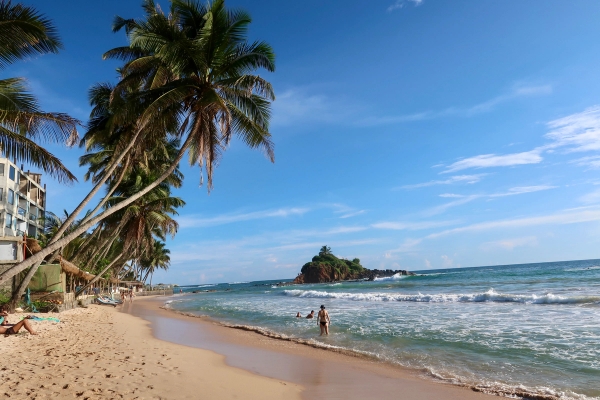
During this time, you’ll participate in lectures to build the theoretical foundation, seminars to deepen your understanding through discussions, field trips to gain real-world insights, and a group project where you’ll collaborate with four to five fellow students on a group exam on a chosen topic.
After the teaching period concludes, you’ll have three weeks to complete a home exam where you can choose your topic from three prompts.
Here’s where things get flexible: The home exam can be written anywhere in the world.
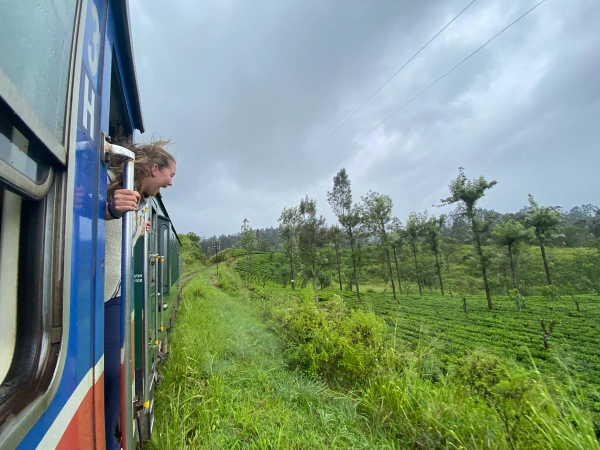
In the past, students have chosen diverse paths during this period for example staying in Nepal, traveling to India or other countries in Asia, or flying back to Norway to focus on their exam in a familiar setting. The options are limitless as long as you have access to WiFi and a good place to focus.
After completing the program in Pokhara, I seized the opportunity to travel to two more countries in South Asia with fellow students I met while studying in Nepal.
Our journey began in the vibrant streets of Kathmandu, a city filled with ancient temples, colorful markets, and infectious energy.
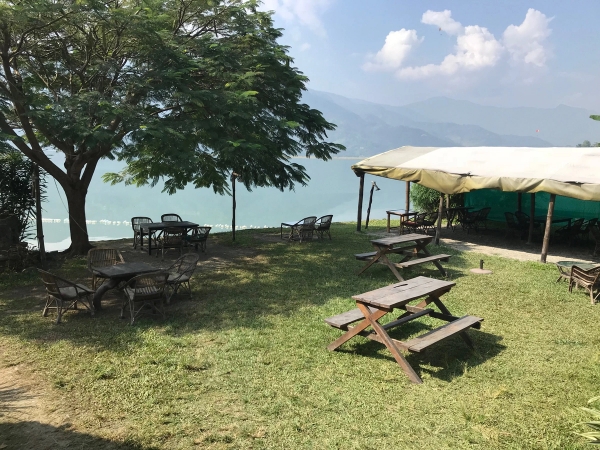
From there, we set our sights on the tropical paradise of Sri Lanka. The island is a beautiful destination with its lush landscapes, pristine beaches, warm-hearted locals, and delicious cuisine.
Traveling around the country was unforgettable, filled with surfing, scenic train rides, tuk-tuk adventures, and eating tropical fruit on the beaches. Each day, we had to find a balance, dedicating a few hours to studying and writing while, of course, making time to explore and enjoy our surroundings.
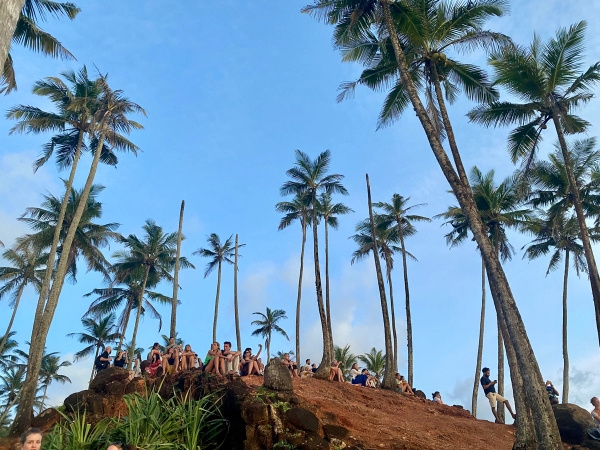
We ensured our accommodations had internet access, but we often opted to study in cafés, which offered a more relaxed and pleasant atmosphere.
Additionally, we purchased a Sri Lankan SIM card for mobile data, which proved incredibly useful, not just for staying connected and focused on writing but also for navigating, booking accommodations, and arranging transportation.
After traveling in Sri Lanka and submitting our exams, we headed back up north to India, embarking on the famous Golden Triangle tour.
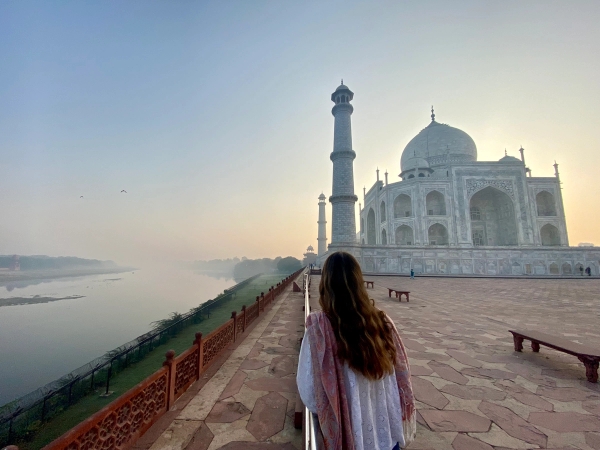
We explored the bustling streets of New Delhi, marveled at Jaipur’s regal palaces, and stood in awe before the world-renowned Taj Mahal in Agra.
This is just an example of one of the endless possibilities you have for traveling during and after your home exam period and I hope this can give you some inspiration!
I highly recommend traveling after your stay in Nepal to immerse yourself in new places and cultures. However, balancing travel with exam preparation can be a bit hectic and requires thoughtful planning.
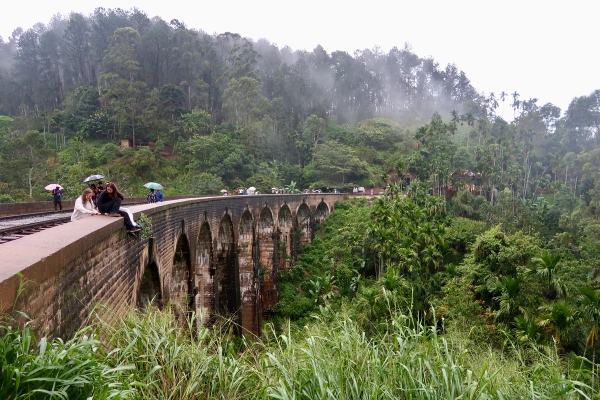
To help you make the most of your journey, here’s some advice:
- Start Early. Begin planning your post-Nepal activities as soon as possible. The final weeks of the program can be hectic, so having at least a rough plan in place is beneficial.
- Be Flexible. Consider purchasing a one-way ticket to Nepal unless you’re certain you want to return home immediately. This gives you the freedom to extend your travels.
- Check Visa Requirements. Research visa requirements for any countries you plan to visit and apply well in advance to avoid last-minute complications.
Starting in autumn 2025, a two-week stay Sri Lanka is included after the Nepal programme.
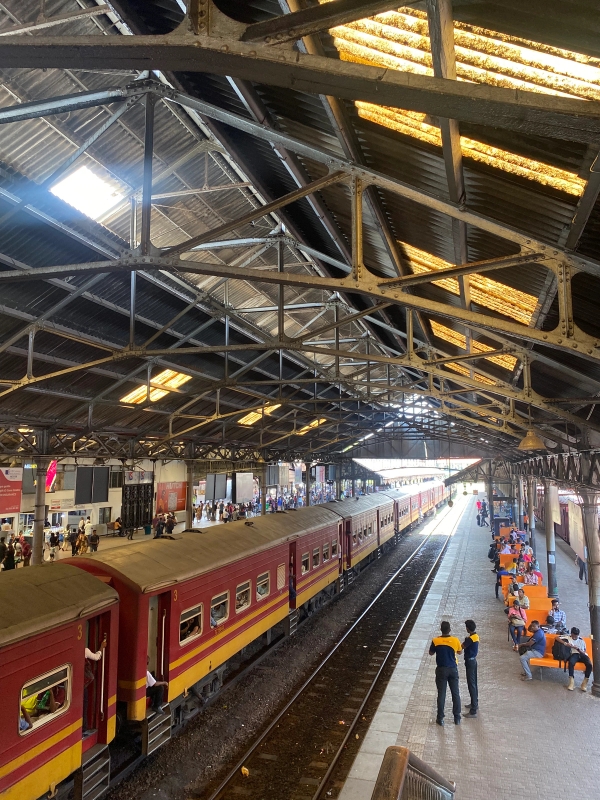
Accommodation during this period is included in the study fee. For those interested in exploring further, the Sri Lanka extension also offers a chance to connect with fellow students who may want to backpack through South Asia.
Practical advice and tips will be provided, ensuring a seamless transition.
Whether you choose to travel, return home, or remain in Nepal, this programme offers a unique opportunity for both academic and personal growth.
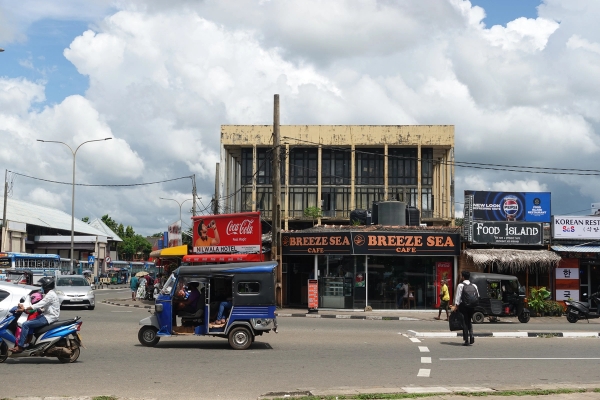
This journey extends beyond just the course, unfolding through the experiences you gain and the connections you build along the way.
Happy studying and safe travels!
